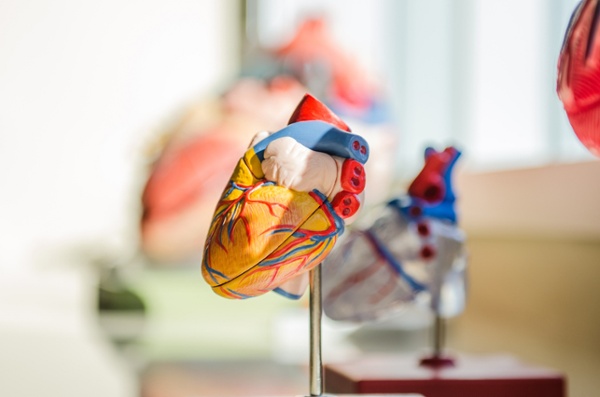Cardiovascular health and how you can improve it
Aaron Aslakson, director of fitness centers | Feb 27, 2020
Think about your day-to-day routine. Maybe you go from place to place: a morning meeting, lunch with friends, an afternoon exercise session at a fitness center, and your favorite news program in the evening. Throughout the day, you don’t think about the fact that your heart and cardiovascular system continuously pump oxygenated blood to your working muscles. Why don’t you think about it? Well, you don’t have to.
The cardiovascular system

The cardiovascular system is an autonomic system controlled by the demands of working muscles. To summarize, your body does all the work for you. That’s why an afternoon exercise session increases your heart rate automatically. Your muscles demand more oxygen, so your body automatically responds by increasing your heart and respiration rates.
We don’t think about our cardiovascular system often, assuming it does its job…until something occurs to change its function and efficiency. Then, of course, we notice. The good news is regular power exercise and physical activity improve our cardiovascular systems. Regular aerobic exercise and physical activity impact the cardiovascular system in multiple ways, both while resting and during exercise. Changes like a decreased resting heart rate, decreased systolic and diastolic blood pressure, increased HDL (the good cholesterol), and decreased LDL (the bad cholesterol) enhance overall health. In turn, the risk of cardiovascular disease decreases.
Regular aerobic exercise and physical activity also have an impact during exercise. Increases in left ventricular wall health improve the heart’s ability to pump blood to working muscles at rest and during exercise. Increased VO2 max—or the maximal ability of the body to take in, transport, and utilize oxygen during exercise—is improved, too. As a result, resting cardiovascular function and exercise capacity improve.
You may be wondering, How much aerobic exercise is enough? Good question.
Exercising to improve cardiovascular health
General recommendations for healthy adults are 150 minutes of moderate level aerobic exercise or 75 minutes of vigorous intensity aerobic exercise per week at minimum (or a combination of moderate and vigorous exercise). You don’t have to do it all at once, though. In fact, even shorter bursts of 10 minutes have been shown to have positive benefits. Here are a few guidelines for starting and maintaining a regular aerobic exercise program:
- Consult your physician prior to beginning any exercise program.
- Do something you enjoy. Any mode of exercise that increases your heart and respiration rates, is rhythmic in nature, and is sustained for a period of time can be considered aerobic exercise. Choose a mode you enjoy… You’ll be more likely to stay with your program.
- Find a workout buddy. Whether you join a walking/running club or a group exercise class, having someone to hold you accountable will help keep you motivated.
- Monitor your intensity. Whether you utilize heart rate zones, rating of perceived exertion, or the talk test, have an understanding of how hard you are working. While you may not start at a moderate level, increasing your heart and respiration rates during aerobic exercise is important to physiological changes. It will also help you connect with your body and gain an understanding of how the exercise feels.
You have the ability to positively impact your cardiovascular system, improve its function and capacity, and avoid cardiovascular disease. Regular aerobic exercise and physical activity have a powerful influence on improving and maintaining the function of your cardiovascular system. The power lies with you, so provide yourself more life by improving your cardiovascular health through exercise. You can start today!
Start improving your cardiovascular health today by visiting one of Walker Methodist’s fitness centers, available to residents and non-residents.
